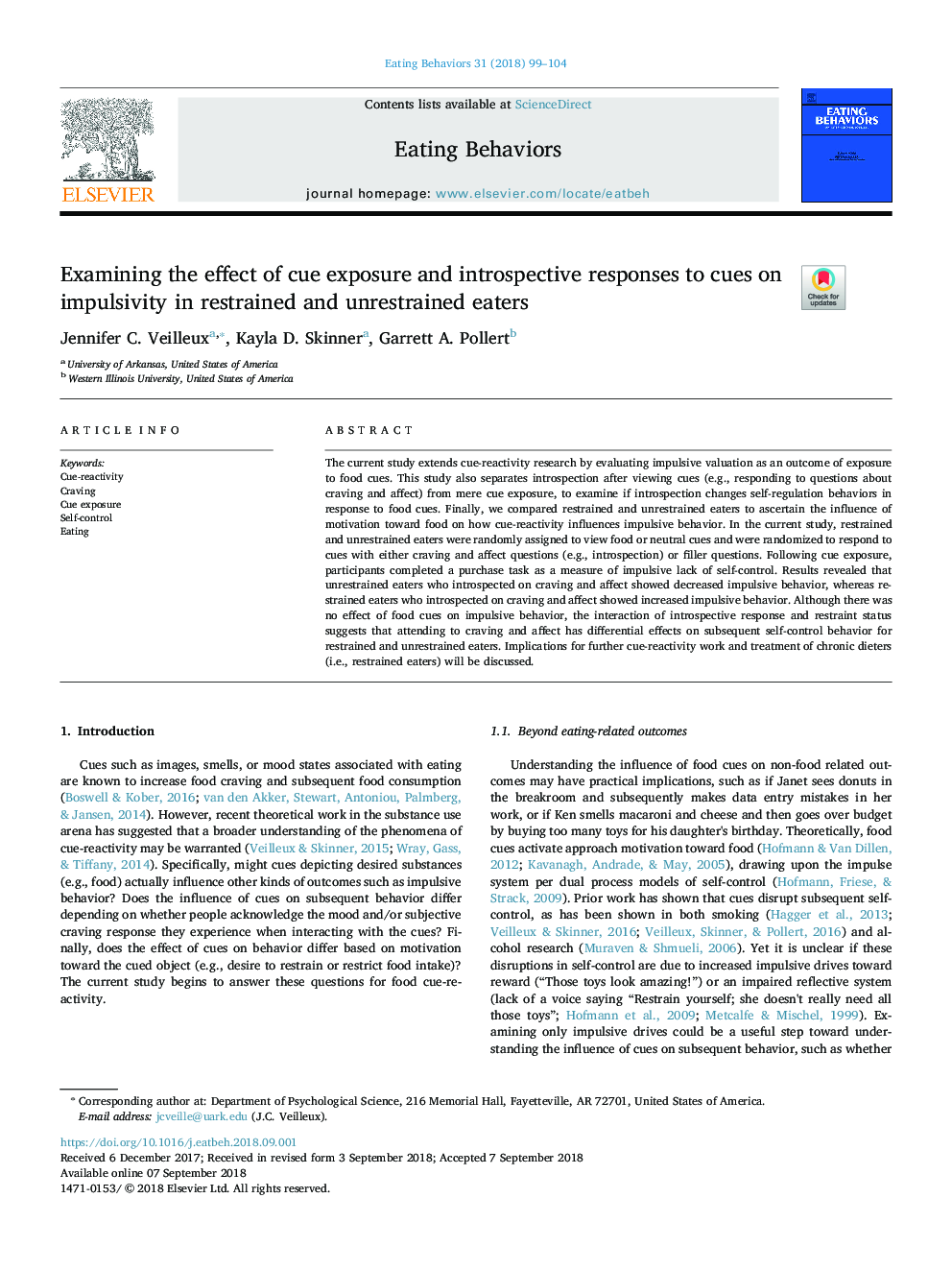| Article ID | Journal | Published Year | Pages | File Type |
|---|---|---|---|---|
| 11004476 | Eating Behaviors | 2018 | 6 Pages |
Abstract
The current study extends cue-reactivity research by evaluating impulsive valuation as an outcome of exposure to food cues. This study also separates introspection after viewing cues (e.g., responding to questions about craving and affect) from mere cue exposure, to examine if introspection changes self-regulation behaviors in response to food cues. Finally, we compared restrained and unrestrained eaters to ascertain the influence of motivation toward food on how cue-reactivity influences impulsive behavior. In the current study, restrained and unrestrained eaters were randomly assigned to view food or neutral cues and were randomized to respond to cues with either craving and affect questions (e.g., introspection) or filler questions. Following cue exposure, participants completed a purchase task as a measure of impulsive lack of self-control. Results revealed that unrestrained eaters who introspected on craving and affect showed decreased impulsive behavior, whereas restrained eaters who introspected on craving and affect showed increased impulsive behavior. Although there was no effect of food cues on impulsive behavior, the interaction of introspective response and restraint status suggests that attending to craving and affect has differential effects on subsequent self-control behavior for restrained and unrestrained eaters. Implications for further cue-reactivity work and treatment of chronic dieters (i.e., restrained eaters) will be discussed.
Related Topics
Life Sciences
Neuroscience
Behavioral Neuroscience
Authors
Jennifer C. Veilleux, Kayla D. Skinner, Garrett A. Pollert,
